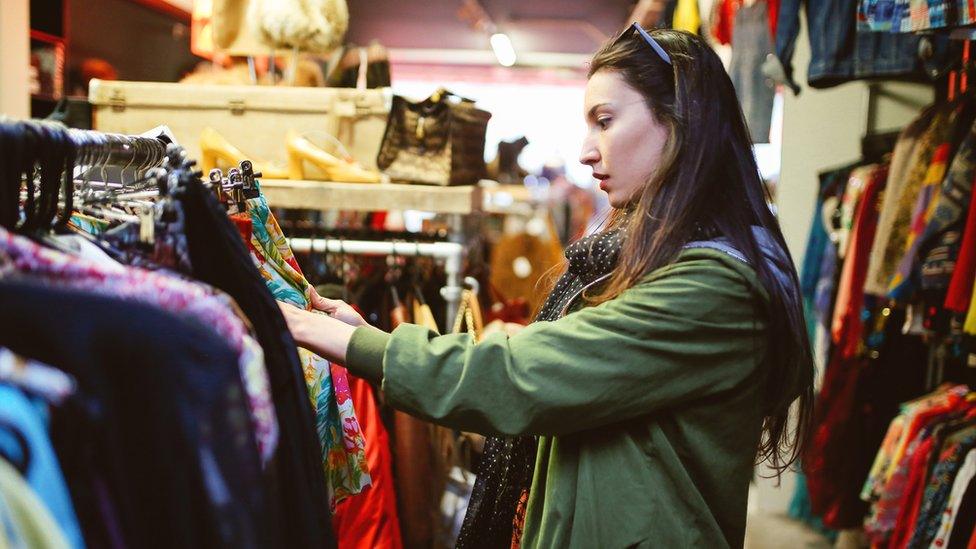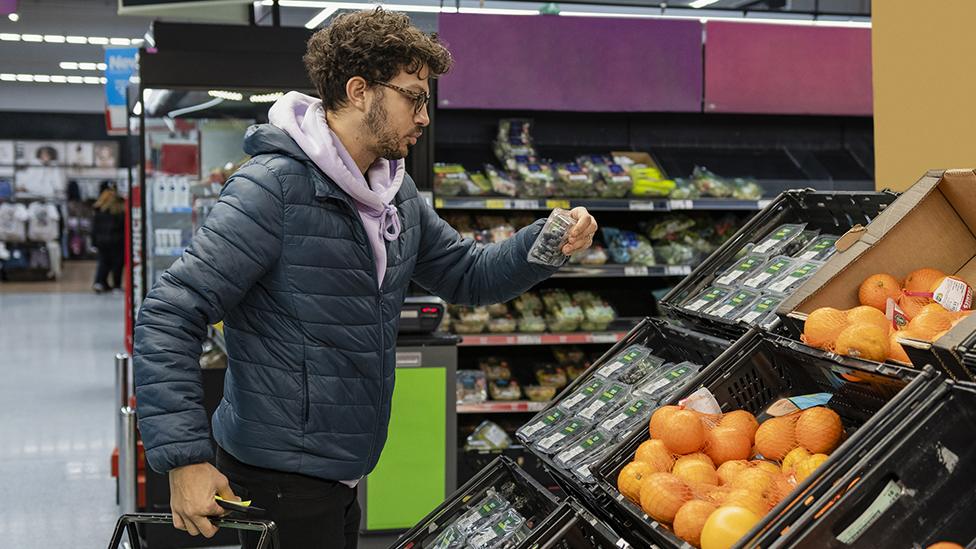UK retail sales boosted by second-hand and discount stores
- Published
- comments

Shoppers facing cost-of-living pressures turned to discount and second-hand stores last month, giving retail sales a surprise boost.
Sales volumes rose by 1.2% in February, official figures showed, the biggest monthly gain since October last year.
Food sales also rose, but the Office for National Statistics, external said there were signs price pressures had cut spending in restaurants and on takeaway meals.
Figures out earlier this week showed prices rising faster than expected.
Inflation - the rate at which prices rise - jumped to 10.4% in the year to February, remaining close to its highest level for 40 years.
The Bank of England has been rising interest rates in an attempt to cool price rises, and on Thursday it lifted rates to 4.25% from 4%.
February's rise in retail sales was stronger than forecast, and followed an upwardly revised 0.9% increase in January.
Sales volumes are now back to pre-pandemic levels, the Office for National Statistics (ONS) said, although are still 3.5% lower than a year ago.
"The broader picture remains more subdued, with retail sales showing little real growth, particularly over the last 18 months with price rises hitting consumer spending power," said ONS director of economic statistics Darren Morgan.
The ONS said non-food sales rose by 2.4% last month, boosted by discount department and clothing stores. There was also "strong growth" in second-hand goods stores, such as auction houses and charity shops.
"Looking at the latest retail sales figures you might be forgiven for wondering if Britain really is in the middle of a cost-of-living crisis," said Danni Hewson, head of financial analysis at AJ Bell.
"But pop the hood and the reality is laid bare... people are hunting out bargains whether they're found in the sales aisles being well-stocked by department stores, or in charity shops or other second-hand emporiums."
Businesses are also feeling the squeeze from rising costs. Pub chain Wetherspoon said inflationary pressures - from the cost of energy, food and labour - had been "ferocious", as it reported its latest results.
"The Bank of England, and other authorities, believe that inflation is on the wane, which will certainly be of great benefit, if correct," said chairman Tim Martin.
Wetherspoon reported a pre-tax profit of £4.6m ($5.6m) for the six months to 29 January, compared with a £21.3m loss a year ago. However, that is still well down on £50m Wetherspoon made in the first half of 2019 before the Covid pandemic hit.
Related topics
- Published24 March 2023

